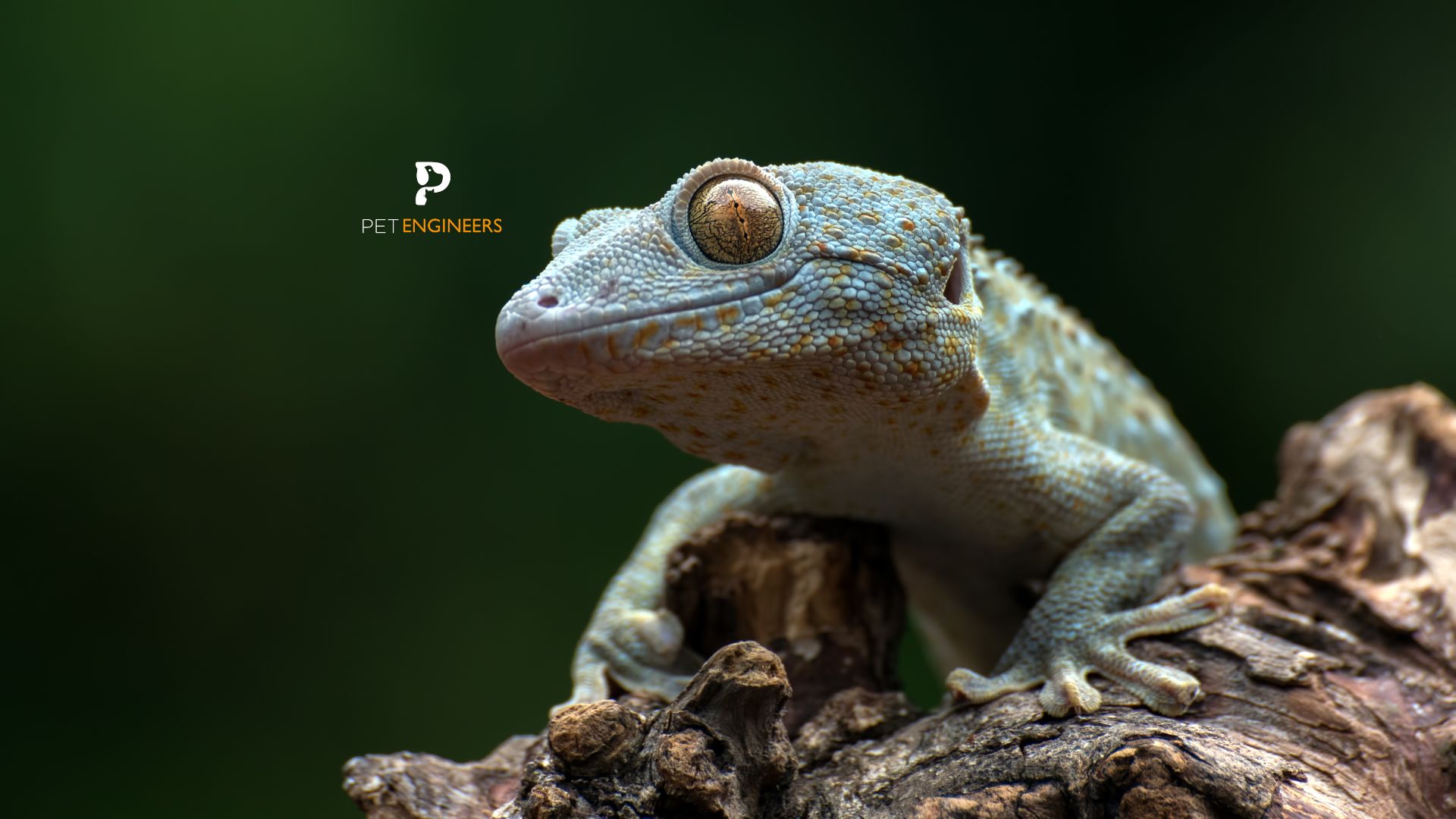
Key Takeaway:
- Many cultural myths surround Tokay geckos, such as their ability to bring good luck and fertility or their supposed connection to dragons.
- While these beliefs are interesting, they have no basis in scientific fact and should not be the sole reason for owning a Tokay gecko.
- Tokay geckos are not a cure for HIV/AIDS. This myth is completely unfounded and has no basis in scientific fact.
- Tokay geckos are not poisonous. Although they can bite if threatened, their bite is not venomous and poses no serious threat to humans.
- Tokay geckos require specific care and environments. They are not easy to care for and should not be kept in any enclosure.
Tokay geckos are fascinating creatures that have been the subject of many myths and misconceptions.
In Southeast Asia, they have been highly prized for their supposed medicinal properties and used in traditional medicine for centuries.
However, many of these beliefs are nothing more than old tales, and some can even be harmful to the geckos themselves.
This article will explore 10 of the most common myths about Tokay geckos and separate fact from fiction.
Whether you’re a seasoned gecko enthusiast or simply curious about these fascinating creatures, this article is sure to provide you with plenty of insight and knowledge.
So, sit back and get ready to discover the truth about Tokay geckos!
10 Myths About Tokay Geckos.
Tokay geckos can cure HIV/AIDS.
One of the most damaging and pervasive myths about Tokay geckos is that their body parts have therapeutic ingredients capable of curing HIV/AIDS.
This idea is especially widespread in Southeast Asia, where geckos are kidnapped in great quantities and illegally trafficked in wildlife markets.
There is, however, no scientific evidence to back up these claims, and the trade in Tokay geckos is pushing their populations to extinction.
Tokay geckos are poisonous.
Another common misconception about Tokay geckos is that they are poisonous.
This perception is frequently fostered by their bright colors and loud vocalizations, which can be frightening to predators and humans alike.
On the other hand, Tokay geckos are not venomous.

Tokay geckos are easy to take care of.
One of the most common misconceptions about Tokay geckos is that they are easy to take care of.
Tokay geckos require a warm and humid environment, with a temperature range between 75 and 85 degrees Fahrenheit and a humidity level of 60 to 70 percent.
They also need a suitable diet of live insects and occasionally small vertebrates and a clean and spacious enclosure.
In reality, caring for a Tokay gecko requires a significant amount of time and effort.
Owners must be prepared to provide a suitable enclosure, maintain proper temperatures and humidity levels, and provide a varied and nutritious diet. They also need to be aware of potential health issues and be prepared to seek veterinary care if necessary.
While Tokay geckos can make fascinating and rewarding pets, they are not a low-maintenance option and should only be kept by responsible and committed owners.
Tokay geckos can live in any enclosure.
Another common misconception about Tokay geckos is that they can live in any enclosure. In reality, these geckos have specific requirements for their housing and improper enclosures can lead to health problems and stress.
Tokay geckos require a spacious enclosure with plenty of climbing surfaces, hiding places, and a suitable substrate for digging and burrowing. They also need a source of UVB lighting to support their health and metabolism.
While it may be tempting to house Tokay geckos in a small or inexpensive enclosure, this can be detrimental to their health and well-being.
Inadequate space and poor environmental conditions can lead to stress, disease, and aggression.
Additionally, improper lighting and substrate can contribute to metabolic bone disease and other health problems.
Tokay geckos only eat insects.

Another common misconception about Tokay geckos is that they only eat insects. While insects make up the majority of their diet, Tokay geckos are also known to eat small vertebrates, such as mice and baby birds.
In captivity, Tokay geckos can be fed a variety of live insects, such as crickets, mealworms, and waxworms. Owners can offer occasional small vertebrates like pinkie mice to provide a more balanced diet.
It is important for owners to provide a varied and nutritious diet for their Tokay geckos in order to promote their health and well-being.
A diet that is too high in protein or lacking essential nutrients can lead to health problems and a shortened lifespan.
Tokay geckos are easy to breed.
While Tokay geckos are capable of breeding in captivity, the process can be challenging and requires specific conditions to be met.
Males and females must also be carefully paired and introduced to each other in a controlled manner in order to prevent aggression and ensure successful mating.
In addition to these specific breeding requirements, Tokay geckos also require a suitable nesting site and proper care during incubation.
Owners must be prepared to provide appropriate temperatures, humidity levels, and substrate for the eggs to develop properly.
While breeding Tokay geckos can be a rewarding experience for experienced reptile breeders, it is not a task for inexperienced or casual pet owners.
Tokay geckos are harbingers of good luck.
Tokay geckos are often associated with good luck, especially in Southeast Asia.
In parts of Southeast Asia, it is believed that hearing a Tokay gecko’s call brings good luck and that keeping a Tokay gecko in the home can bring wealth and happiness.
As a result, these geckos are sometimes kept as pets for their supposed good luck.
However, it is important to note that these beliefs are purely cultural and have no basis. Keeping a Tokay gecko as a pet solely for good luck is not a responsible reason to own a pet.
Tokay geckos require specific care and environments and should only be kept by responsible and knowledgeable pet owners who can meet their needs.
Tokay geckos can see into the future.
Another myth surrounding Tokay geckos is that they possess supernatural abilities, such as the power to see into the future.
This belief is also based purely on cultural superstitions and has no basis.
Tokay geckos are not known to possess any supernatural abilities or powers and are simply a species of geckos with unique physical and behavioral characteristics.
It is important to base our understanding of Tokay geckos on scientific facts, not cultural myths, or superstitions.
By learning about these geckos from reliable sources and understanding their biology and behavior, we can provide them with the care and respect they deserve as living creatures.
Tokay geckos are the descendants of dragons.

Another myth surrounding Tokay geckos is that they are the descendants of dragons.
This belief is prevalent in certain cultures, particularly in Southeast Asia, where the Tokay gecko is often associated with dragons in folklore and mythology.
In some traditions, the Tokay gecko is considered to be the offspring of the dragon or to possess some of the dragon’s powers and characteristics.
However, this belief has no basis according to science. Tokay geckos are a species of gecko with unique physical and behavioral characteristics and their evolution and ancestry are not linked to dragons or other mythical creatures.
Tokay geckos are regarded as bringers of good fortune and fertility.
In some cultures, Tokay geckos are regarded as bringers of good fortune and fertility.
It is believed in some parts of Southeast Asia that keeping a Tokay gecko in the home will bring good fortune and fertility.
However, it is important to note that these beliefs are purely cultural and have no basis.
Summary
If you’re interested in Tokay geckos, it’s important to separate fact from fiction. Many myths surround these creatures and believing them could lead to improper care or even harm to the geckos themselves.
For instance, it is not true that Tokay geckos can cure HIV/AIDS, and there is no scientific evidence to support this claim, and it is dangerous to rely on such myths instead of seeking proper medical treatment.
Similarly, Tokay geckos are not poisonous, and while they can bite if threatened, their bite is not venomous and poses no serious threat to humans.
It is also a misconception that Tokay geckos are easy to take care of and can live in any enclosure.
These creatures require specific care and environments to thrive. They need appropriate heating, lighting, and humidity levels, and their enclosures should be large enough to allow for adequate movement.
It is important to research and ensure that you have the right setup before bringing a Tokay gecko into your home.
It is not as easy as some may believe when breeding Tokay geckos. These creatures have specific requirements for breeding success, including proper diet, temperature, and lighting conditions.
Breeding should only be attempted by experienced owners who have done their research and have the necessary resources to care for the offspring.
While Tokay geckos are often associated with good luck, fertility, and dragons, these beliefs have no scientific basis.
While they may be interesting cultural myths, they should not be the sole reason for owning a Tokay gecko.
It is important to approach these creatures with a responsible, fact-based mindset to ensure their well-being and your enjoyment of owning such a unique and fascinating creature.

